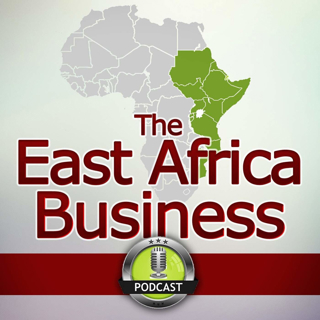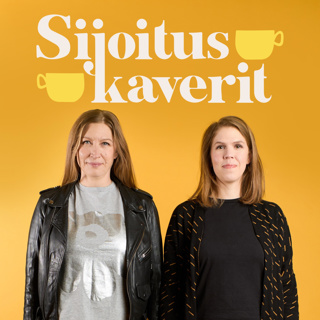
Season Two Preview
OverviewSo… after a few months away The East Africa Business Podcast is coming back, with more interviews from entrepreneurs and business leaders on the ground in this exciting part of the world. On Thursday we’ll be going live with an interview with Sam Kamande, Head of Data at mSurvey. A company leveraging technology and big data to help businesses improve their customer experience. It’s a great episode, and we even get onto the topic of wearing mascara. After that we’ll have the usual assortment of in depth interviews from diverse industries, including a few from Ethiopia, which is a fascinating place when it comes to business. We’ll learn how challenging it is to implement business models common in other parts of the world, namely ride hailing (i.e. Uber) and restaurant delivery (i.e. Deliveroo), and importantly the strategies entrepreneurs there are taking to overcome. As one of them said, “if we can make it in Ethiopia, we can make it anywhere in Africa” Staying updatedIn terms of some housekeeping there are a few things to update you on. Firstly, we now have a Facebook page, and so if you’d like to get updates of episodes, and learn more about the guests and their companies, please do Like and Follow the page. You can find it by searching for: The East Africa Business Podcast On there we’ll also be resharing episodes from the archives, and so it’ll be a good way to keep an eye out on an interesting topic or business that you may wish to learn more from. Also, if you are listening to this update after hearing previous episodes, then it would be fantastic if you could leave a review of the show on iTunes or wherever you get your podcasts. It’ll help others like you find the show, and generally, I’d just appreciate it. So, I’ll leave it at that for now. Keep an eye out for a new episode hitting your podcast inbox on Thursday 25th January, and look forward to speaking to you then.READ MORE AT:https://theeastafricabusinesspodcast.com/2018/01/21/season-two-preview/
21 Tammi 20182min

*SPECIAL* Silicon Savannah: Business Lessons from East Africa Talk
OverviewWe’ve got a slightly different format for this episode – it’s a recording of a talk that I gave on a recent trip back to London. It was held at a co-working space (@huckletree) to an audience of people interested in learning more about the business scene in East Africa. We have a bit an intro and overview of the main industries in the region before delving into a few other topics which haven’t really been covered so far on the podcast Some thoughts around how technology in the region is being adopted quicker, leapfrogging the developed worldHow the education system means it can be difficult to hire in East AfricaAnd a discussion around the implications of Brexit and the Trump election on the region About half way through we get to Q & As which, in my opinion is the best bit as we get to cover some more contextual questions of the business scene. Some of the questions might be a bit tricky to pick up, but you should be able to work out what’s going on from the resulting discussion. In any case, this is a slightly longer episode than you might be used to, but with the diversity of topics we cover, I hope you find it useful. If you have any thoughts, questions or comments, just drop me a message on Twitter @Sam_Floy or by email podcast@samfloy.comREAD MORE AT:https://theeastafricabusinesspodcast.com/2017/08/23/special-silicon-savannah-business-lessons-from-east-africa-talk/
23 Elo 20171h 16min

Season One Conclusion
OverviewThis is a little episode to update you on what’s going to be happening with The East Africa Business Podcast. The short version is that the podcast is going on hold for a while as I focus on growing my own business in the East Africa region. I’ll explain the context, which should hopefully make a bit more sense. In any case, the podcast will likely be back in the not-too-distant future and in the meantime we can all have a bit of a breather. How the podcast startedAs background I found myself starting this podcast as means to meet entrepreneurs in East Africa. I was interested in learning about the business scene and found that requests to “meet for a coffee to learn about your business” were quite understandably rebuffed with “I’m just too busy running my company” Therefore I thought about ways in which I could equal the exchange and still have that conversation. Almost all of the companies I was looking to talk to were looking for exposure and to generally increase their brand awareness and it turned out to be relatively straightforward to create a set up where I could record a conversation about their business and soon have it appear on iTunes. It turns out that an opportunity to showcase your company to an international audience is a much more attractive proposition than going a coffee with a random guy from Britain. What now?Now however my schedule has begun to fill up a bit. When I started out on my “Try Before You Buy Tour” around the region I essentially gave myself 4 months to understand as much as I could about the business scene in East Africa with a view moving out permanently and starting my own thing. I started by taking a flight to Rwanda and, using savings from my previous start up job in London, I could devote substantial amounts of time to absorb the business environment. After undertaking a “Big Think” in Zanzibar I decided Kenya was where I wanted to move full-time and begun making plans to undertake the transition to Nairobi. Now that I’m here, this, naturally, involves finding a way to live sustainably. I undertook work at a start up in Nairobi and began consulting with other organisations as a means to pay the rent. What spare time I do have goes towards validating the shortlist of business ideas I’m considering, and then putting effort into getting them off the ground. As such, with the podcast not bringing in direct revenue, it’s something to be put on the shelf for the time being. It’s something I’ve thoroughly enjoyed to date and so will be certain to pick it up again as soon as conditions permit. Look in the archiveAnyway, I’m sure that’s more than enough about me For you, the listener, there are many excellent episodes within the archive for you to go back and enjoy if you’re interested in learning more about business in East Africa. If you’ve not subscribed already, just search for The East Africa Business Podcast on iTunes, Stitcher or any of the other podcast apps and scroll through the forty plus episodes that are there. All have their nuggets of brilliance and so I’d recommend finding a title which piques your interest and giving it a listen. Nevertheless, I will now highlight some of my favourites for you to try out first: READ MORE AT:https://theeastafricabusinesspodcast.com/2017/06/07/season-one-conclusion/
7 Kesä 20175min

Dream. Grow. Be Found. How Fuzu equips thousands of Kenyans for the workplace, with Jussi Hinkkanen
The demography in East Africa dictates that tens of millions of people will be entering the job market in the coming years There is not only a challenge of creating jobs, but also guiding individuals on a path of what they want to do. People typically lack the career counselling framework from, say, their families, especially for roles such as “digital marketing manager”. Jussi is building Fuzu – a platform to guide people through their careers. We discuss growing a company with a base in both Finland and Kenya,how Fuzu categorises their type of job seeker and the challenges of bringing a disruptive business model to a traditional market. Jussi also has probably the best rationale I’ve heard around the role of “for profit” and “not-for-profit” organisations in solving large scale social problems in developing markets, something I’ve always struggled to grapple with myself. It comes in at around 12 minutes. For now though, I hope you enjoy the episode. READ MORE AT:https://theeastafricabusinesspodcast.com/2017/05/31/career-development-building-an-individualised-employability-platform-with-jussi-hinkkanen-from-fuzu/
31 Touko 201732min

We Farm are building an SMS-based social network for farmers, with Kenny Ewan
When you consider different ways of getting information, you might think of going on Google or reading a book But how to do this in an environment with no libraries, computers, let alone internet access? Farmers in the field have limited means to get information and We Farm are looking to help by providing a Peer to Peer platform for farmers to send SMS questions and answers to each other. Kenny, the CEO, and I discuss the process – of pairing these questions and answers, why he thinks people are altruistically contributing to the platform and the most common question that they get asked by farmers… At times the audio is a little bit iffy, but we’ve done our best to edit things to what is hopefully an acceptable level, if you want some more information head to samfloy.com / podcast for the show notes. For now though, hope I you enjoy this episode with Kenny from We Farm READ MORE AT:https://theeastafricabusinesspodcast.com/2017/05/24/sms-farming-building-an-agricultural-social-network-without-the-internet-with-kenny-from-we-farm/
24 Touko 201731min

Paying for textbooks by the page: how Kytabu is disrupting Kenyan education, with Tonee Ndungu
The main way that students learn how to pass an exam is by reading from a textbook. Traditionally, this has been built on the premise of publishers printing physical copies,distributing to schools and taking cash payments. This all comes at a cost, which is prohibitively high for a lot of schoolchildren in East Africa. Tonee and I spend this episode discussing Kytabu. They’ve turned the model on its head by digitising the content of these publishers, and allowing students and teachersto access what they want, when they want it,renting chapters from a book at a few US cents per day, paid for with mobile money We also discuss how a lot of Kytabu’s employees are still at university, other trends that Tonee sees in the East African EdTech space and how a different interpretation of doughnut can completely undermine attempts from abroad to distribute educational content It’s a great example of using scalable technology to disrupt an industry, and so I hope you enjoy READ MORE AT:https://theeastafricabusinesspodcast.com/2017/05/17/ebook-renting-bringing-innovation-to-textbooks-in-kenya-with-tonee-ndungu-from-kytabu/
17 Touko 201730min

Kenya's first local producer of coconut goods. Kentaste's hustle to get in supermarkets and more
One of the growing international product categories is goods made from coconuts. The health, and taste, benefits of coconut oil and coconut milk have caused a rise in demand for these types of product In Kenya, hundreds of thousands of coconuts are grown each year, and yet were not processed into these high value goods. In this episode I talk with Sakina from Kentaste, Kenya’s first coconut good producer. We discuss the process of making coconut products from their coastal factory, knocking on doors at supermarkets to get listed and then paid and how to use coconut oil with your dog As a consumer of Kentaste products, which is part of why I wanted to go and interview them, I can also say that it’s really good stuff. In any case, I hope you enjoy this packed interview with Sakina about all things coconuts READ MORE AT:https://theeastafricabusinesspodcast.com/2017/05/10/coconuts-kenyas-first-local-producer-of-coconut-goods-with-sakina-from-kentaste/
10 Touko 201731min

Preventing food waste through solar powered fridges, with Luke Davey from Inspira Farms
One of the recurring themes throughout conversations with agriculture companies is the problems with post harvest loss If produce can’t be kept cold then it will perish quicker and as a result farmers lose out on income Cold storage (essentially a big fridge) offers the solution, but in an environment with inconsistent power supply, and poor access to capital, this has proved difficult. In this episode Luke and I talk about how Inspira Farms are using technology to solve this problem. We discuss how the technology they’ve developed is innovating the market, the compelling financial arrangement they are able to offer farmers and how selling in Kenya is different to doing so in Rwanda I found this a really interesting conversation to cover the landscape of agriculture in East Africa, and so I hope you enjoy it too. READ MORE AT:https://theeastafricabusinesspodcast.com/2017/05/03/cold-storage-units-selling-modular-fridges-to-reduce-post-harvest-loss-with-luke-davey-from-inspira-farms/
3 Touko 201731min





















